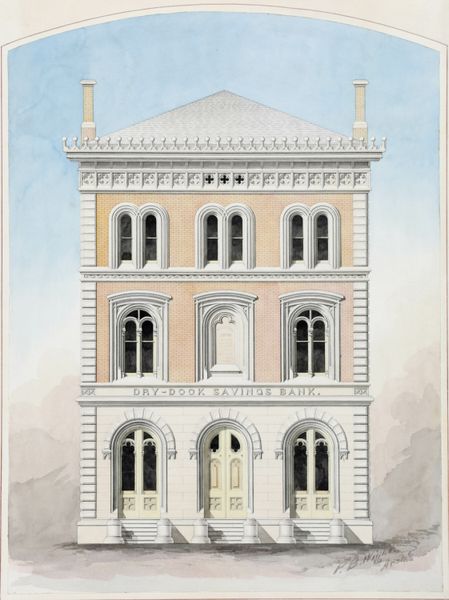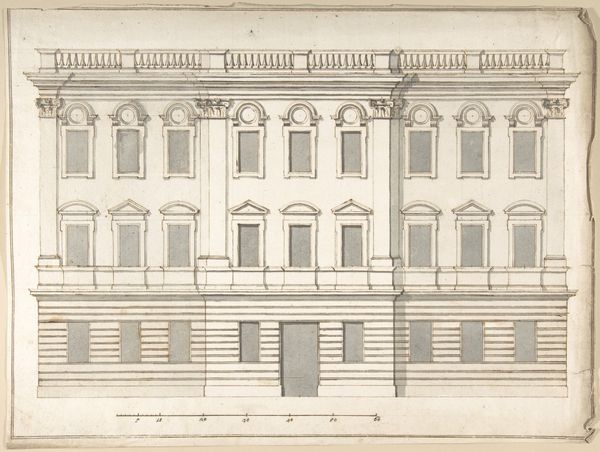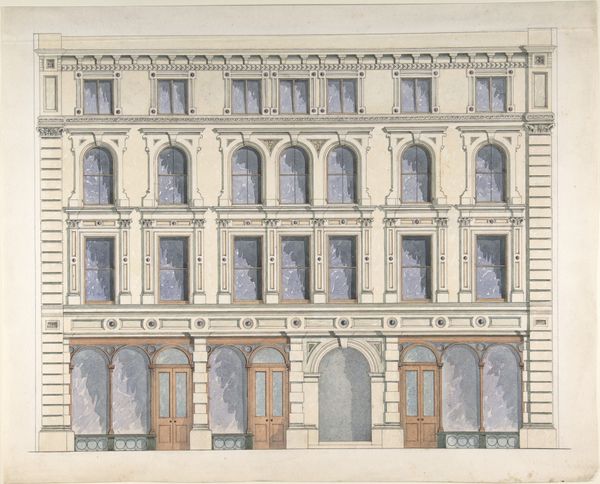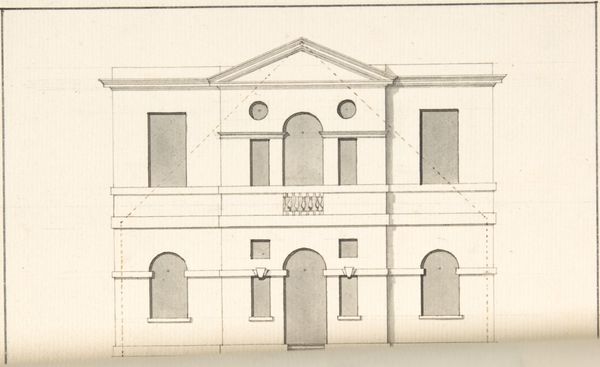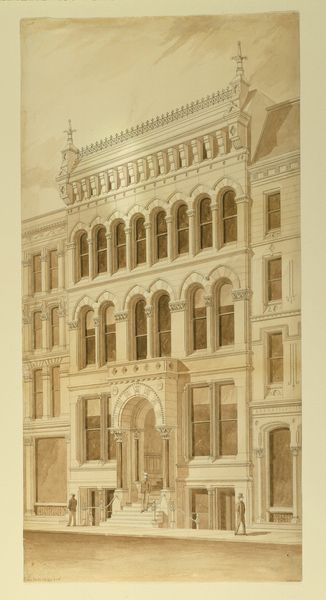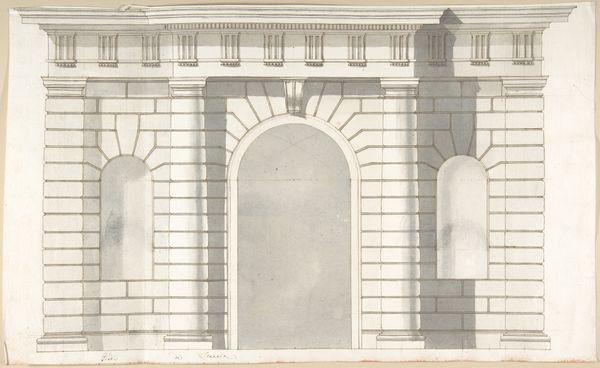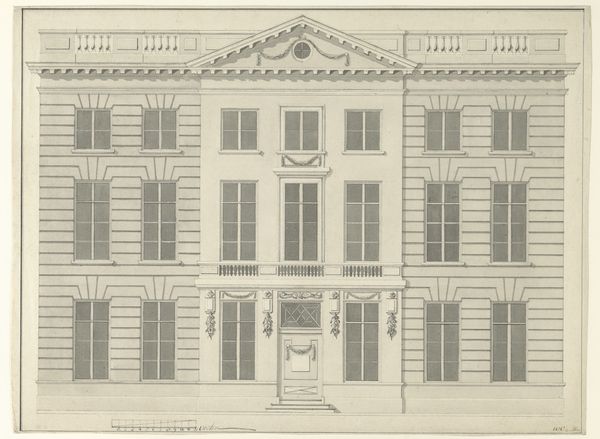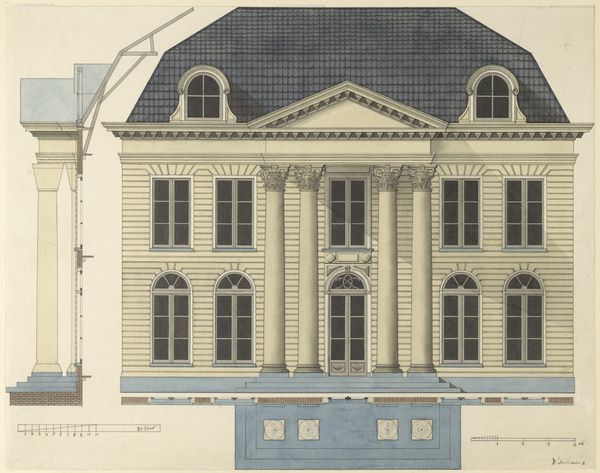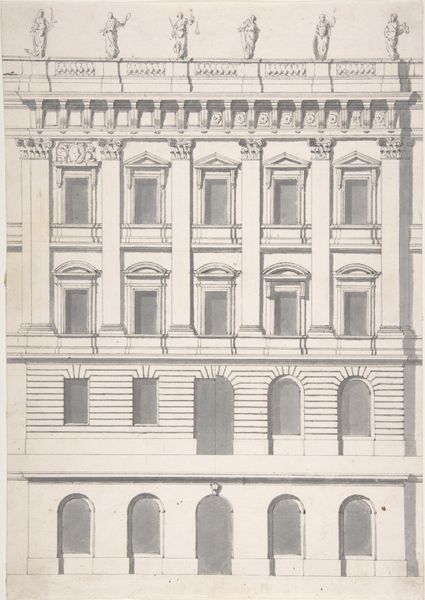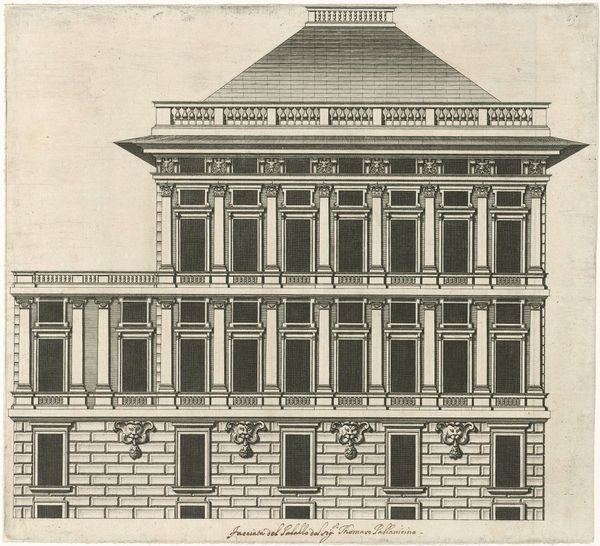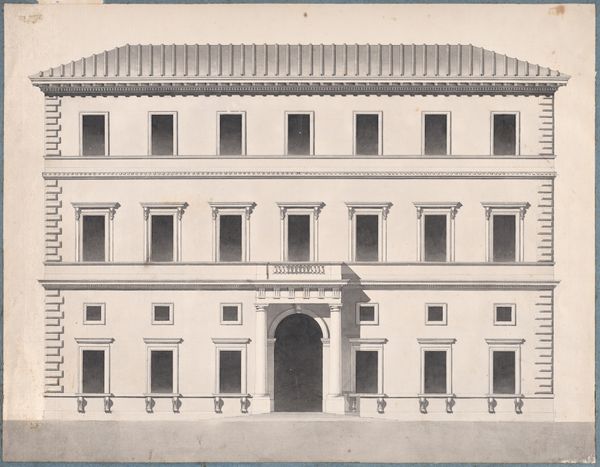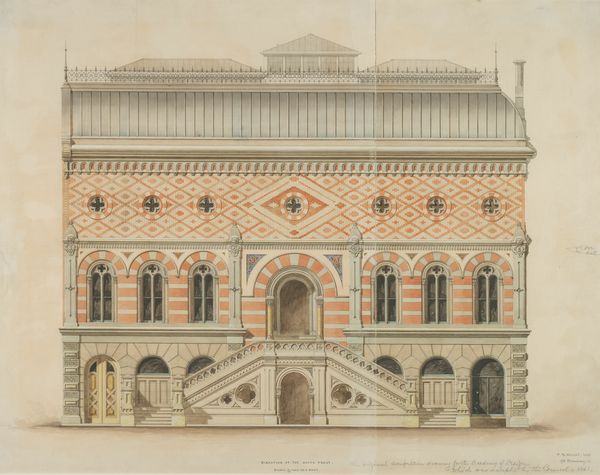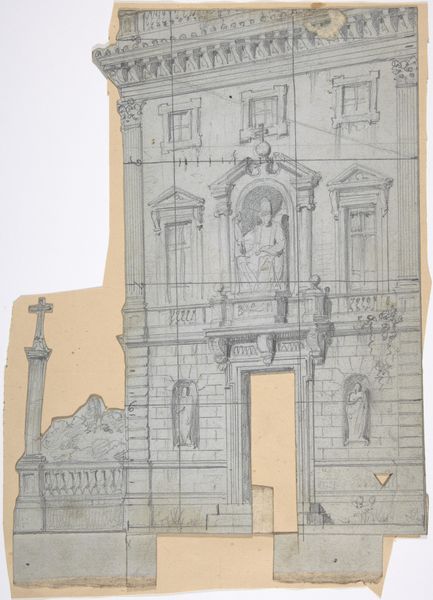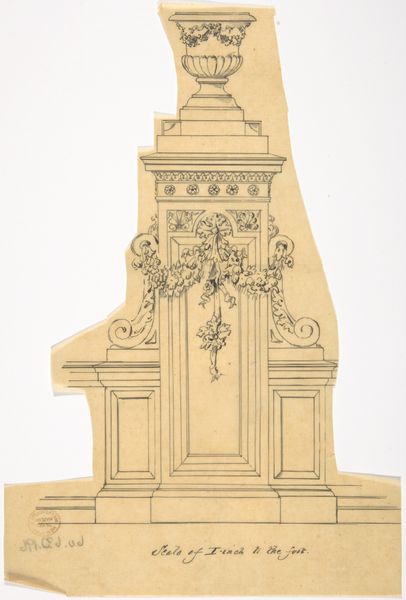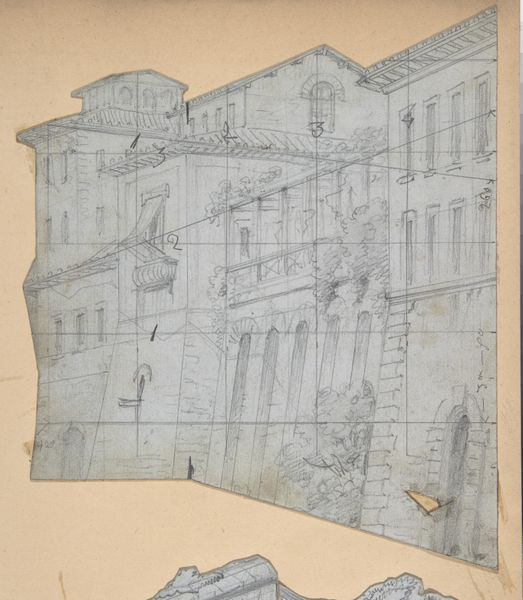
carving, wood, architecture
#
architectural sketch
#
carving
#
historic architecture
#
traditional architecture
#
geometric
#
classicism
#
architect
#
architecture model
#
architectural drawing
#
wood
#
architecture drawing
#
architectural proposal
#
architectural
#
architecture
#
historical building
Dimensions: height 34 cm, width 55 cm, depth 28.5 cm, height 3 cm, width 59.5 cm, depth 34.5 cm
Copyright: Rijks Museum: Open Domain
This is a paper model, or "Papieren model," made by L. A. van den Ende, and it presents us with a fascinating intersection of art, architecture, and social representation. The model's Neoclassical design speaks to the cultural values of order, reason, and authority, echoing the architectural styles favored by the elite in 18th and 19th century Europe and its colonies. Its creation reflects a society that valued precision and craftsmanship, while also reinforcing a visual hierarchy through its aesthetic choices. Was this model commissioned by a wealthy patron or institution? Was it perhaps used in architectural training? Unraveling its story requires delving into the social and institutional contexts in which it was produced and consumed. By examining the history of architectural education, the patronage system, and the cultural meanings associated with Neoclassical architecture, we can begin to appreciate the complex social dynamics embedded within this seemingly simple paper model.
Comments
No comments
Be the first to comment and join the conversation on the ultimate creative platform.
